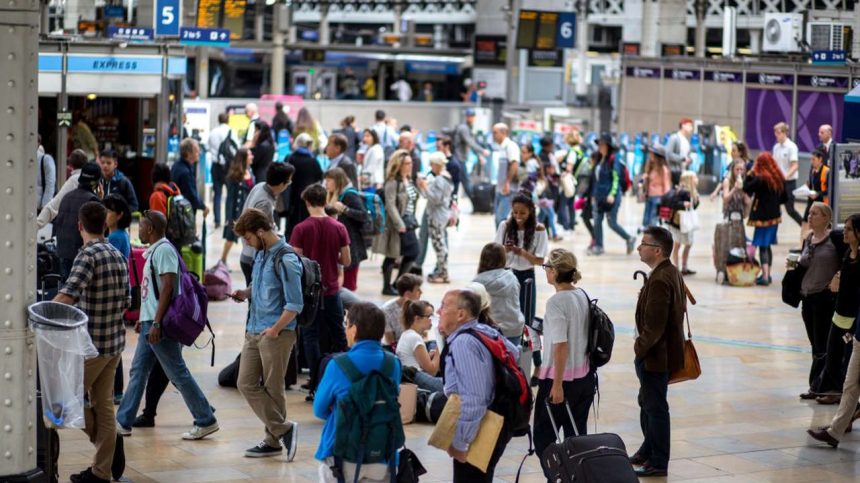The three words ‘Do Not Travel‘ can raise a wide variety of emotions in anyone planning a trip, from disappointment, through frustration to downright fury.
Now new research shows that rail passengers are often left confused by messages given out by train operators.
A report from Transport Focus asked passengers what they understood by a ‘do not travel' notice, with some respondents saying that such messages can be confusing and frustrating.
One of the prime reasons given was that the railway industry runs trains and yet tells potential passengers not to use them.
Many of the reasons for trains not running, or for passengers being asked to consider whether they should venture onto a service, can be obvious.
These include extreme weather or warnings of such occurrences and episodes such as flooding or damage to overhead wires.
The report itself was prompted by the severe weather seen in October 2021 which led to severe disruption and affected many events and travel to various parts of the country, including the COP26 climate summit which was held in Glasgow.
People were asked how train operators should improve their communications with passengers.
While many said that messaging used at present is clear, consideration should be given to the use of plain English and the avoidance of technical jargon as well as being given clear facts in order to make a clear decision about travelling.
Following that path might make those who will travel in spite of the advice, because the journey is seen as being not ‘deferrable', make a more informed decision.
Consideration should also be given as to where recipients are on their journey: whether they are still at home, for example, or whether they have started the journey.
The report took into consideration a wide variety of situations, including when announcements were made and the kind of language used.
Passengers were also quizzed as to whether they understood the ‘do not travel' message and whether they had sufficient information upon which to base a decision as to whether to venture forth.
Potential improvements were also sought, considering the content of the messages themselves, the type and tone of language used and how the messages impacted on passenger behaviour.
Anthony Smith, Transport Focus chief executive said: “Passengers can be annoyed when they know trains are running but are told not to use them. The railway should reflect carefully on when it is right to say, ‘do not travel'. Passengers would rather be given the facts so they can make an informed decision.
“When there is major disruption, train companies should steer clear of baffling jargon like ‘ticket easement' and make sure they communicate in ways passengers will immediately understand.”
Jason Webb, customer information director and Rail Delivery Group lead for SISJ, added: “The Smarter Information, Smarter Journeys (SISJ) Programme was pleased to jointly-commission this research with Transport Focus. The research delivered new insight into how customers react to information during severe disruption. Following the research, the SISJ Programme has worked with train operators to develop and implement best practice to be used when communicating ‘do not travel' messages.
“This includes recommended language, good practice messaging examples and communication principles which is now being used by train operators, so customers should benefit from clearer, more consistent information.”

It does seem that, with some train operators at least, the slightest aberration in the weather causes them to issue “do not travel” announcements. This is not helped by the Met Office now indulging in hysterical warnings about stormy, hot of cold weather that, a few years ago, would have been considered just our normal changeable weather
“When there is major disruption, train companies should steer clear of baffling jargon like ‘ticket easement’ . . ”
If TOCs need to have explained to them that passengers don’t know what the blue blazes ‘ticket easement’ means, then those issuing the messages would be out of their depth on a film of dew.